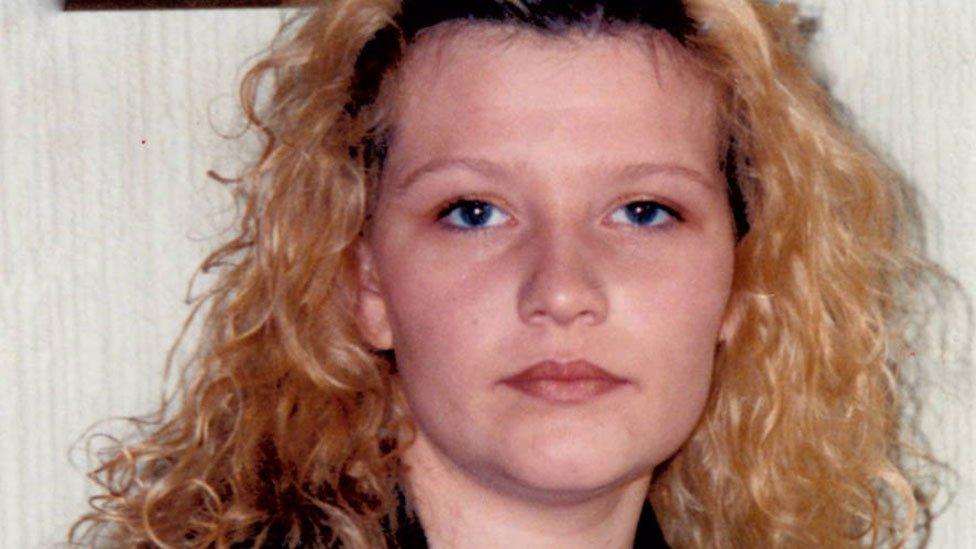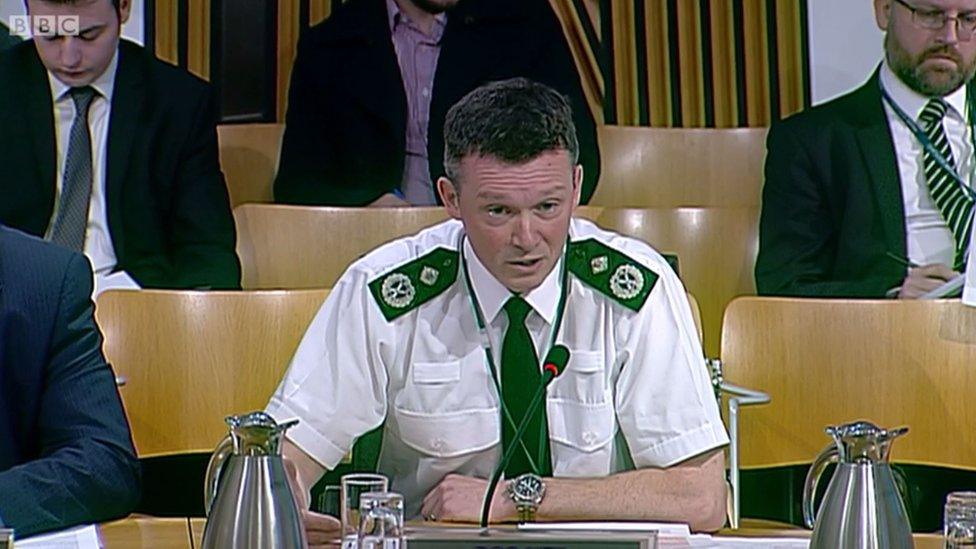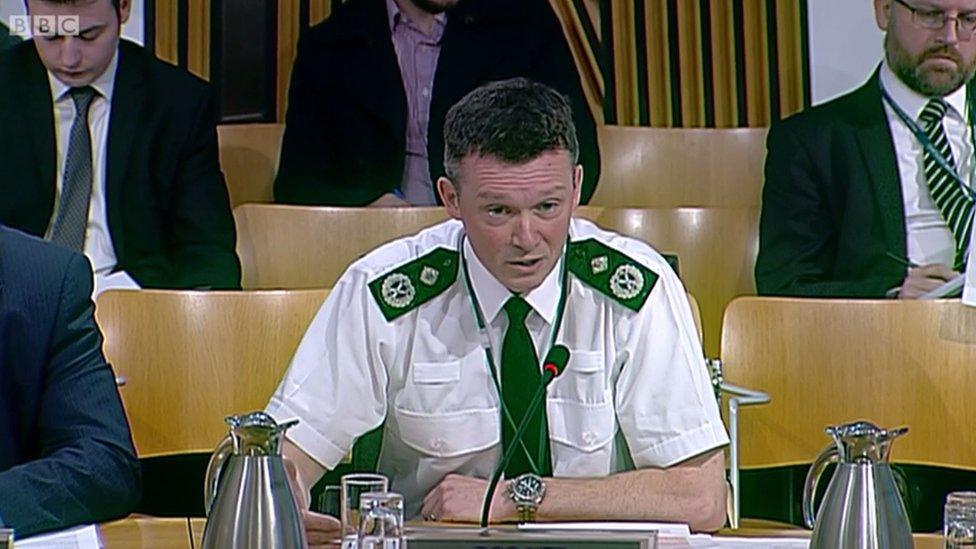Police acted 'unlawfully' in data case, says tribunal
- Published

Police Scotland has been the subject of a series of investigations over the rule breaches
A judicial tribunal which investigated whether Police Scotland breached spying guidelines has ruled the force acted "unlawfully."
It looked at the cases of individuals whose data was accessed as the force tried to determine how information about a murder probe reached the press.
The tribunal ordered a journalist whose communications were intercepted should be paid £10,000 in compensation.
An independent inquiry into Police Scotland's actions has been announced.
The Interception of Communications Commissioner ruled in November 2015 that officers had broken new spying regulations by obtaining communications data without permission on five occasions.
Officers had been attempting to find out how information about the investigation into the murder of Emma Caldwell in 2005 had appeared in the media.

Emma Caldwell was discovered dead in woods near Biggar, South Lanarkshire, in May 2005
Sir Stanley Burton said the "failures" by police "could properly be seen as reckless".
This latest ruling from the Investigatory Powers Tribunal (IPT) came after a hearing took place in Edinburgh last month.
Two former police officers, and their wives, together with two serving policemen, took the action against the force to "complain of the collateral interference with their privacy".
Gerard Gallacher, a former police officer who carried out an 18-month journalistic investigation into the case, is to be paid £10,000 after telling the tribunal he had suffered an "invasion of privacy, familial strife, personal stress and strain and loss of long-standing friendships" as a result of Police Scotland's actions.
The IPT ruled the interference with his rights to freedom of expression were "serious in respect of the obtaining of more than 32 days of communications data".
Of the six complainants, only Mr Gallacher and his wife had been seeking compensation.
'No repeat'
The tribunal also ordered that an inquiry into the breach of guidelines by police be conducted by a senior officer "from another police force in the United Kingdom other than Scotland, and without any previous relevant connection with Police Scotland".
At the end of July, Phil Gormley, the Chief Constable of Police Scotland, asked Mike Barton, Chief Constable of Durham Constabulary, to head an independent investigation into the issue.
Responding the the IPT judgement, Police Scotland Deputy Chief Constable Iain Livingstone said the force would "consider and act" on the findings.
He added: "Police Scotland has fully accepted that standards fell below those required in this case. It would be inappropriate to comment further at this stage given the investigation to be conducted by Chief Constable Barton.
"Following the breach, a full review was immediately conducted to ensure there could be no repeat of the circumstances which led to the IOCCO determination, which Police Scotland accepted."
'Large step forward'
Det Insp David Moran, one of the complainants in the case, welcomed the judgement from the IPT.
He said: "That there is to be an inquiry by an external police force into the circumstances surrounding the affair is a large step forward, however I have concerns that Police Scotland have invited the Chief Constable of Durham Constabulary to examine the outstanding 'non-criminal' matters only.
"I do not believe that is in the spirit of what was discussed at the IPT hearing on July 22 and that all matters, whether potentially criminal or non-criminal, should be on the agenda for a new independent and impartial enquiry."
Last year, Mr Moran contacted MSPs on Holyrood's Justice Committee, saying he had been falsely identified as the source for a newspaper article about the Emma Caldwell murder investigation and this has left his reputation "severely scarred".
He said the tribunal judgement stated Police Scotland had "no intelligence" suggesting he was involved in leaking information.
David Kennedy, deputy general secretary of the Scottish Police Federation, said: "This judgement leaves no doubt that the actions of the Police Service of Scotland towards our members (and others) breached their human rights.
"The SPF had no hesitation in supporting our members seek remedy for this breach and we sincerely hope the service will reflect on this ruling when considering their future actions."
- Published31 July 2016

- Published27 June 2016

- Published9 March 2016

- Published29 January 2016

- Published15 December 2015

- Published25 November 2015
